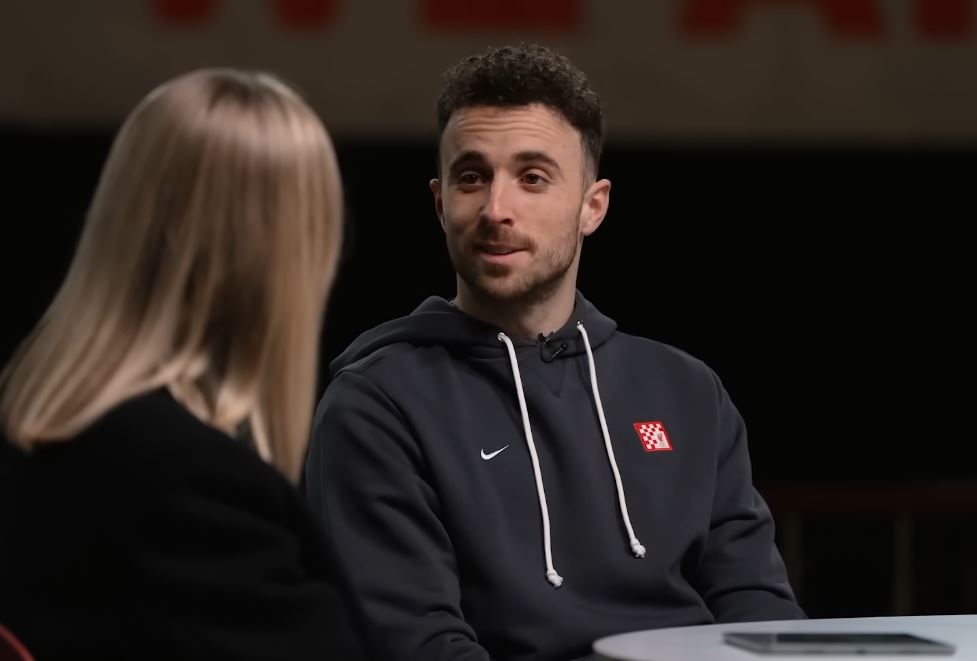Diogo Jota’s £140,000 weekly wage is remarkably comparable to that of Darwin Núñez and Cody Gakpo, but it is still far less than Mohamed Salah’s incredible £400,000. The disparity effectively illustrates Liverpool’s pay stratification, with a few celebrities earning enormous salaries while the stable core—including Jota—sits in the middle but nevertheless earns amounts that can change people’s lives. His career path is especially motivating because, as a reminder that even great success frequently begins modestly, he previously performed at Paços de Ferreira for a salary that hardly covered rent.
His move to Liverpool, where scouts found him to be especially inventive in pressing and finishing, has significantly increased his pay development. In just two years at Wolves, he had demonstrated his extraordinary versatility by switching roles with ease and scoring goals on a regular basis—qualities that were crucial in earning Klopp’s confidence. Jota entered Liverpool’s pay structure in 2020 after agreeing to a £49 million agreement. Her weekly salary skyrocketed from £45,000 to £140,000, a significant increase that screams as loudly about market inflation as it does about talent.
Diogo Jota – Bio, Career and Salary Profile
| Category | Details |
|---|---|
| Full Name | Diogo José Teixeira da Silva |
| Date of Birth | December 4, 1996 |
| Birthplace | Porto, Portugal |
| Height | 1.78 m (5 ft 10 in) |
| Current Club | Liverpool FC |
| Position | Forward (AM RL, ST) |
| Weekly Salary | £140,000 |
| Annual Salary | £7,280,000 |
| Contract Expiry | June 30, 2026 |
| Estimated Net Worth | £42,224,000 |
| Career Gross Earnings | $53,803,661 (approx.) |
| Previous Clubs | Wolves, Atlético Madrid, FC Porto (loan), Paços de Ferreira |
| Major Honours | FA Cup, Carabao Cup, Community Shield, UEFA Super Cup |
Jota’s income might seem little in comparison to Erling Haaland’s incredible £865,000 weekly salary at Manchester City. However, they are incredibly strong indications of his significance given Liverpool’s cautious salary strategy. The club has always placed a higher priority on balance than matching rivals’ excesses, guaranteeing loyalty without upending its organizational structure. This strategy has been incredibly successful in maintaining Liverpool’s competitiveness while reducing financial burden.
Jota’s projected £42 million net worth goes beyond her weekly salary. He has progressively increased his financial stability through sponsorship agreements, tournament bonuses, and celebrity appearances. His contracts were incredibly dependable during the epidemic, when football revenue streams were under pressure, providing stability in uncertain times. Supporters who see football as more than just a sport—rather, as a means of subsistence for those who devote their lives to it—find resonance in this steadiness.
His salary package puts him in an intriguing position within the team. He sits above Harvey Elliott, makes precisely the same as Gakpo, and is still beneath Salah and Van Dijk, who are powerful players. These numbers serve as both monetary and cultural indicators for teammates, indicating their position, who they need to catch, and which performances are most valued. It is quite similar to corporate pay bands in many respects, fostering ambition while upholding equity.
Debate is frequently sparked by how society views these wages. Football players are sometimes perceived by fans as being overrewarded because they receive £140,000 every week. However, the salary is fairly low when compared to Liverpool’s commercial turnover, which includes match-day sales, television, and merchandise. Jota’s objectives have a direct impact on shirt sales and broadcast viewership, therefore his influence is both financial and emotional. Liverpool uses his performances to monetize loyalty on a worldwide scale, integrating his pay into a wider economic environment.
Football salaries have risen dramatically during the last ten years, mostly due to streaming services and broadcasting agreements. Football contracts were altered by the Premier League’s foreign broadcasting rights, just like Netflix changed the pay rates in Hollywood. Jota’s situation is indicative of this change, as once-peripheral players now earn seven-figure yearly contracts just by being reliable. This trend is especially advantageous for young players in academies, demonstrating that you can still achieve incredibly consistent riches even if you don’t become Messi or Ronaldo.
Contracts like Jota’s have cultural effects on society in addition to economic ones. Youngsters aspire to play football in order to earn money as well as trophies. His voyage from Porto to Liverpool offers a story of hope that resonates with families on different continents. With a weekly salary of £140,000, he transcends his status as an athlete and becomes a light of ambition rewarded, demonstrating the positive impact that perseverance and flexibility can have on people’s lives.
Jota is in his prime at the age of 27. At least two more years of financial and professional stability are guaranteed under his existing contract, which expires in 2026. He might be able to get a final peak-era contract if it is extended, which could result in a slight increase in pay. Even if not, his career earnings will have exceeded $70 million by the end of his contract, which is a very stable amount to have for the rest of one’s life. Such insight is not only advantageous, but also critically important in a field where injuries have the potential to end careers.




